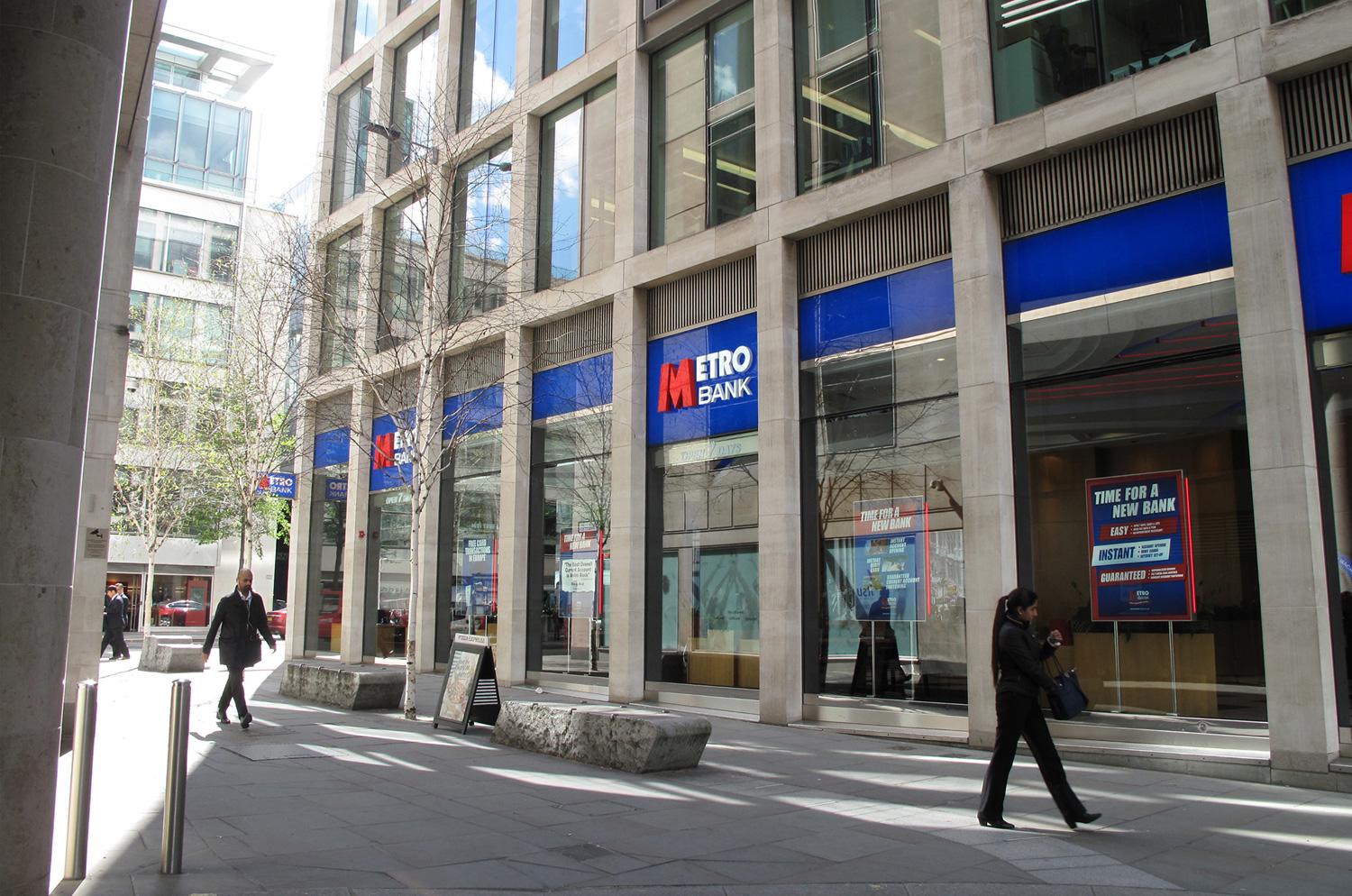
It started with just one store, its iconic red and blue sign standing out against the grey buildings of post-crisis London. Since then, it has multiplied; its name was whispered amongst friends, before hitting the headlines of main finance magazines. A growing ‘revolution’ against the traditional – and disgraced – UK banks: Metro Bank.
The US-born Metro hit the streets of London for the first time in 2010 – the first new bank in the UK in 150 years, apparently – with the slogan ‘love your bank at last‘ emblazoned above the entrance. At the time this was, of course, a fairly tall order; 2010 was just two years after the financial crash that saw customers lining the streets of local towns to withdraw their savings from Northern Rock, a period that the British banking industry has yet to recover from. But Metro Bank ignored this, establishing itself proudly at a prime location in Holborn, ready to tackle the public’s mistrust with the kind of enthusiastic customer service that Americans are renowned for.
It is now six years on, and Metro bank aren’t doing half bad. March saw their IPO on the London Stock Exchange raising £1.1 billion in private capital – and after an initial price plunge, shares are now steadily climbing back up. For founder Vernon Hill and his wife Shirley, things are looking even better – last Sunday, they entered the Sunday Times Rich List for the first time with a wealth of £400 million.
Hill, an all-American businessman who made his fortune investing in Burger King, has a motto: “great brands grow by building fans.” And over the past six years, the fan-base has grown; the bank now has 717,000 customer accounts, up by 62,000 in the past three months alone. But the real question is – would I be one of them?
At first sight, the bank has a very American feel – imagine, if you will, a cross between a bowling alley and an upmarket McDonalds and you’re about on the right page. However, I’m easily pleased and took a liking to the idea of having water bowls and treats for pets – I didn’t come in with a dog, but it was a refreshing change from the formal atmosphere of my current bank. (They also pay the re-homing fees for customers adopting pets from Battersea Cats and Dogs Home – I’m not entirely sure why, but I thought it was a nice touch.) I was offered a drink by surprisingly friendly staff, and shown where to wait – so far, so good.
I’m no stranger to opening bank accounts – at university I opened as many as possible to take advantage of the cheap overdrafts and free railcards banks use to woo students – but this was the easiest so far. I needed only my passport – no proof of address – and the debit card was printed on the spot, rather than arriving in the post days later. However, the biggest selling point for me is the lack of transaction fee in Europe – as standard, Metro bank take no commission on payments made abroad and convert the currency at competitive Mastercard exchange rates – a rarity for UK banks. I chose my PIN and was signed up for online banking within minutes; I walked out half an hour later with a fully functioning bank account.
The group now have over 40 branches across London and the South West, all of which are open seven days a week. Financially, they are doing well for a relatively new company – revenue rose 11 percent in the first quarter of 2016 and, whilst still not making a net profit, underlying losses were reduced by 7 percent to £7.9 million. If growth continues at this pace, management expects to break even this year and finally turn a profit in 2017 – not bad for a bank that is only six years old.
Of course, we’re only a couple of hours into our new relationship and there are still many aspects to be tested – how will they fare when I lose my card? Or if my card is blocked aboard? Only time will tell, and for that reason I won’t be making plans to swap my main current account over any time soon; but based on today, Metro has potential. As a bank trying to be give a refreshing, customer-based experience, it certainly hit the spot.
Miranda Wadham on 27/04/2016
